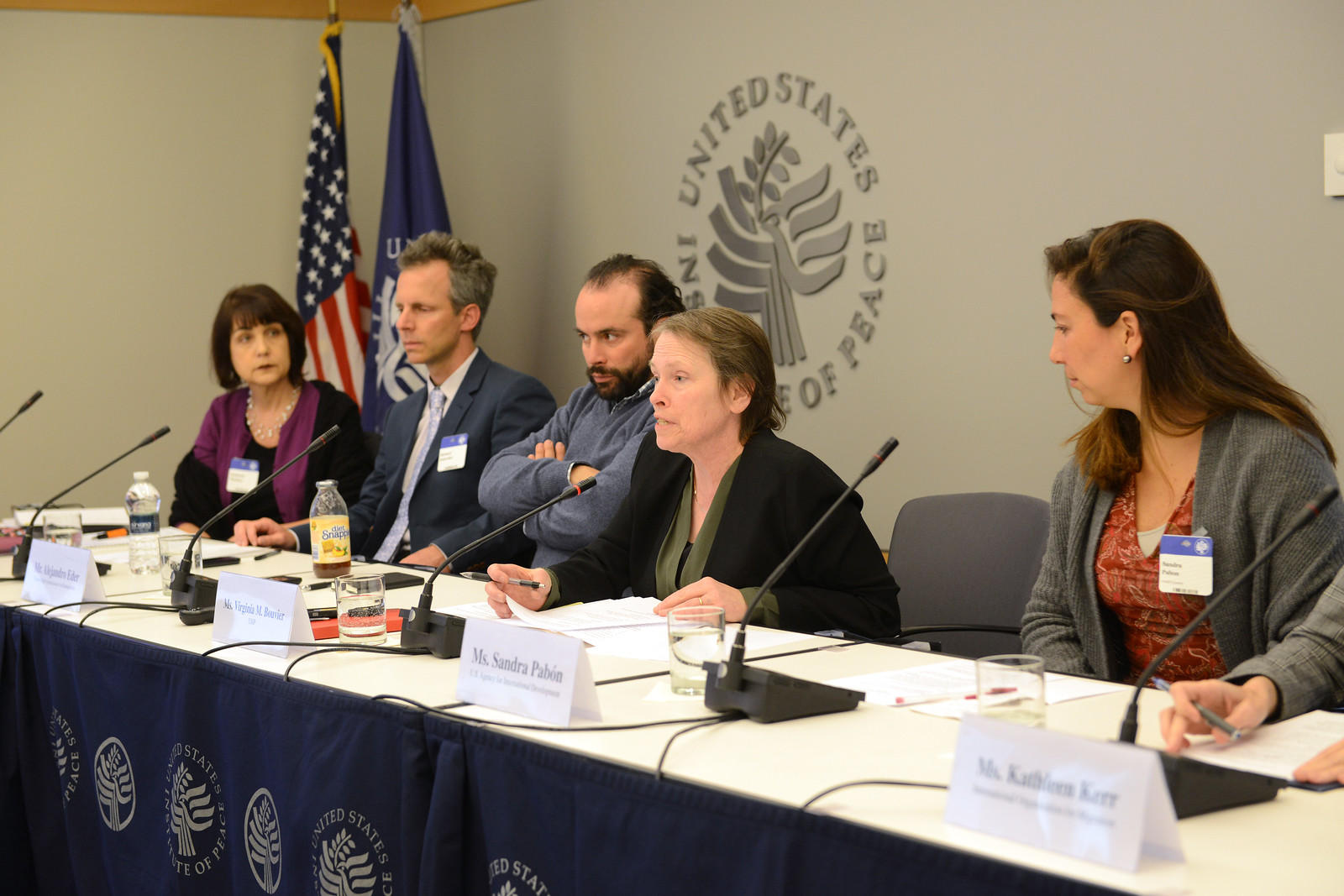Colombia Peace Forum: Paths to Reintegration
Peace negotiators seeking to end Colombia’s five-decade-long conflict are beginning to tackle the final issues, including how to reintegrate former insurgents into civilian life. On January 29th, the U.S. Institute of Peace held a discussion of this vexing question with experts including a former negotiator at the peace talks in Havana.

As the parties in the talks prepare for their 32nd round of negotiations in early February, the key remaining issues to be resolved focus on establishing processes that ensure victims of the war will be able to secure their rights to truth, justice, reparations, and guarantees that violations won’t be repeated. Another challenge regards negotiating how former combatants and their associates will make the transition back to civilian life, a process known as demobilization, disarmament, and reintegration (DDR).
Two panels at this Colombia Peace Forum on Paths to Reintegration analyzed the successes and pitfalls of DDR processes from around the world, lessons from Colombia’s past reintegration efforts, and policy recommendations in a new report from the International Crisis Group. Continue the conversation on Twitter with #ColombiaPeaceForum.
Speakers
Virginia M. Bouvier
Senior Advisor for Latin American Programs, United States Institute of Peace
Alejandro Eder
Former High Commissioner for Reintegration
Former Alternative Plenipotentiary at the Havana Peace Talks
Mark Schneider
Senior Vice President and Special Adviser on Latin America, International Crisis Group
Kathleen Kerr
Deputy Chief of Mission-Colombia, International Organization for Migration
Sandra Pabón
Reintegration and Prevention of Recruitment Team Lead, Office of Vulnerable Populations, U.S. Agency for International Development-Colombia
Michael Duttwiller
Legal Analyst, Transitional Justice Unit, Mission to Support the Peace Process, Organization of American States
Kimberly Theidon
Senior Fellow, Latin America Program, Woodrow Wilson International Center for Scholars
Adam Isacson
Senior Associate for Regional Security Policy, Washington Office on Latin America
Agenda
2:00 | Welcome and Introductions
- George Lopez, VP, Academy for International Conflict Management and Peacebuilding, USIP
- Ginny Bouvier, Senior Advisor for Latin America, USIP
2:15-3:15 | Panel I: Lessons from Colombia: What Has Worked and What Has Not?
- Experiences of Reintegration from the Office of the High Commissioner for Reintegration
Alejandro Eder, former High Commissioner for Reintegration - Lessons Learned from the AUC Demobilizations
Sandra Pabón, Team Lead for Reintegration and Prevention of Recruitment, Office of Vulnerable Populations, U.S. Agency for International Development-Colombia, and Kathleen Kerr, Deputy Chief of Mission-Colombia, International Organization for Migration - Reintegration in Urabá: Role of the Evangelical Churches
Kimberly Theidon, Senior Fellow, Latin America Program, Woodrow Wilson Center for International Scholars - Challenges to Demobilization and Transitional Justice: Lessons from the Organization of American States’s Mission to Support the Peace Process (MAPP-OAS)
Michael Duttwiler, Legal Analyst, Transitional Justice Unit, MAPP-OAS
Break 3:15-3:30
3:30-4:30 | Panel II: Policy Recommendations for a Forward-Looking Reintegration Process
- “Ending the Conflict in Colombia: The New ICG Report,” Mark Schneider, Senior Vice President and Special Advisor on Latin America, International Crisis Group
- Commentators:
- Adam Isacson, Senior Associate for Regional Security Policy, Washington Office on Latin America
- Ginny Bouvier, Senior Advisor on Latin America Programs, USIP
https://www.youtube.com/watch?v=sCp0BipFQB0


